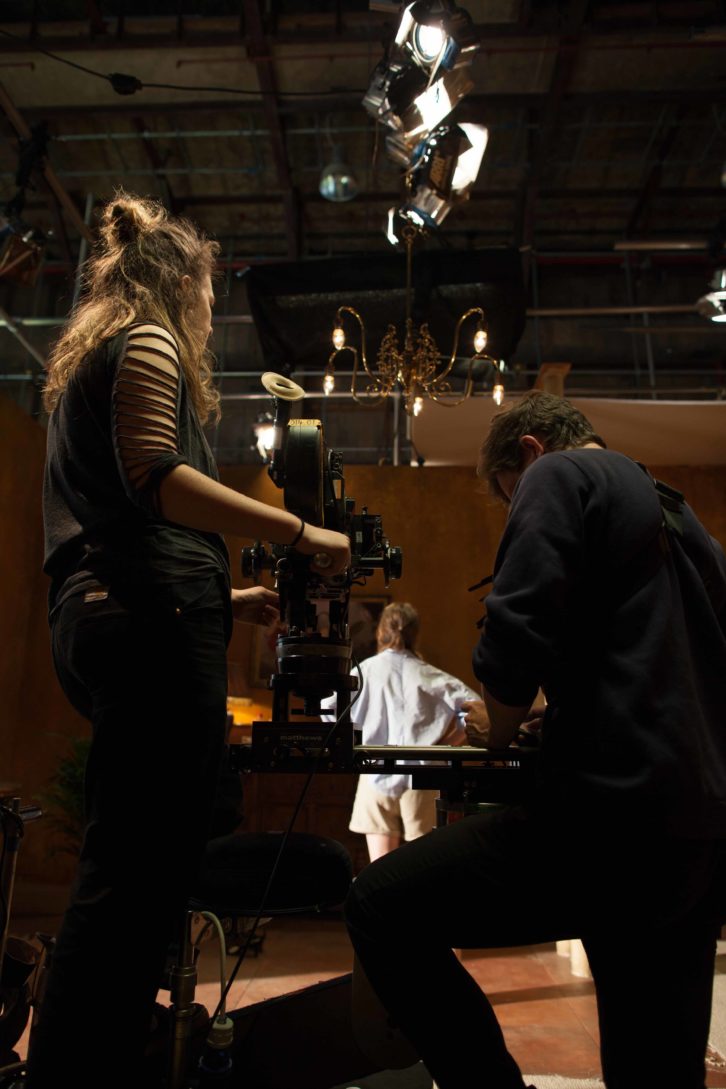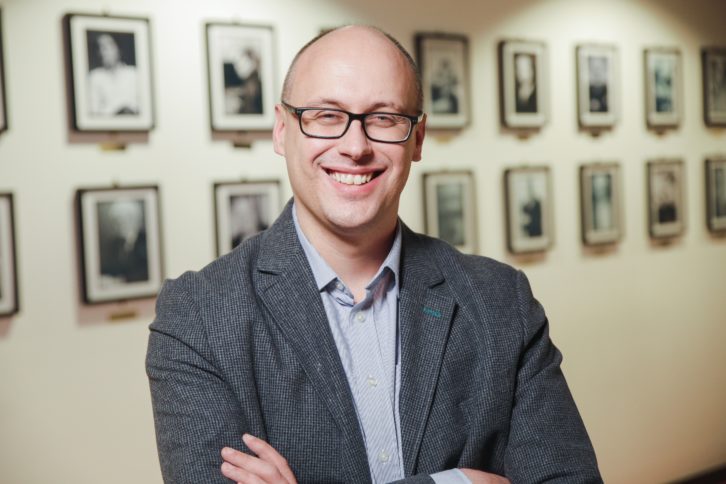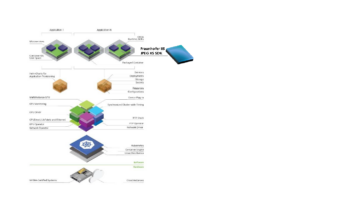Based in Beaconsfield, to the west of London, the National Film & Television School (NFTS) has been nurturing talent in the industry for over 50 years. Our graduates include the Oscar-winning cinematographer Roger Deakins, Oscar-winning animator Nick Park of Wallace & Gromit fame, and acclaimed directors like Lynne Ramsay and David Yates.
We offer more than 30 MA, Diploma and Certificate courses, and have more behind-the-camera courses than any other film school. We are proud to be recognised as a model of excellence, and we are consistently listed as one of The Hollywood Reporter’s top international film schools.
So, you can imagine how scary it felt when, back in March 2020, I had to send an email telling all our students that the gathering pandemic meant we had to close our doors.

The NFTS is a very hands on, practical school. Students ‘learn by doing’, making films, television shows and games to an exceptionally high standard in real studio environments. Transitioning online was going to be a mammoth task but we also saw it as a major learning opportunity for us as well as our students. We have always had a policy of going where people need to be trained, and this was going to be an extension of that philosophy: to see how much we could do remotely.
We already had a strong technology platform, built around a very large EditShare multi-node EFS storage platform, along with FLOW asset management and workflow software. We currently have 308 users and 200 media spaces on the system, which correlates to 200 projects. EFS and FLOW are ideally suited to cloud connectivity, and as remote collaboration is likely to be a key part of the future of television and film production it should be a key part of our curriculum.
Our students had already told us they wanted greater flexibility. No one wants to sit in an edit suite until 1am waiting for something to render: they would rather set something off, go and participate in student life, then come back to it.
That is one of the great benefits about using cloud-based tools: it enables us to model the sort of good work/life balance that we might want to see adopted by the industry, and show our students how to make it work to their advantage.
In the craft roles to which our students aspire, flexibility is the key. Sometimes they will want to be sitting in the same room as the director and cinematographer, collaborating directly. But equally, they do not want it to take over their lives. Cloud-based services enable them to decide how they work, project by project, day by day.
A central part of that flexibility is that they should focus on the craft of what they are doing rather than being forced down a particular technological route. We do not specify which tools the students should use, as long as the workflow makes sense. Our students have access to editors from Avid, Adobe and Da Vinci; our colourists use Nucoda, Baselight and Resolve.
We can do that because our EditShare storage platform is completely application agnostic. It happily supports content from any device, even allowing projects to flow seamlessly between applications from different vendors.

Our courses are almost entirely practical, so access to media is the biggest challenge. Our requirements are actually slightly more demanding than most productions, because we have so many projects running in parallel, with tutors needing a view across not just one but multiple projects.
Each project has an EditShare Workspace. Students and tutors involved in that project all have access to the same material from the same point of contact, whether that is to watch rushes, edit or add VFX, or to check the latest cuts. Tutors can make comments on the timeline, so it is very easy for students to get feedback as well as work collaboratively, wherever they are working.
What all this means for us – and for our strong relationships with vendors – is that we are often at the vanguard of what users are doing with technology. Our students like to break things: they push everything to the boundaries. If a system can be student-proof, it will be completely fine in the professional world. Our technology partners understand that the feedback from our students is particularly valuable.
We want NFTS students to learn best practice principles. In post, that means understanding how to access materials, and how to manage assets so that a single source can serve multiple different devices.
Our growing reliance on cloud connectivity and remote collaboration may have been forced upon us, but it has proved beneficial in enabling stronger collaborative working between people working remotely. Our technology platform, built around EditShare EFS and FLOW, has supported these collaborations by making it easier to communicate and share. And that is definitely the future for the industry.







